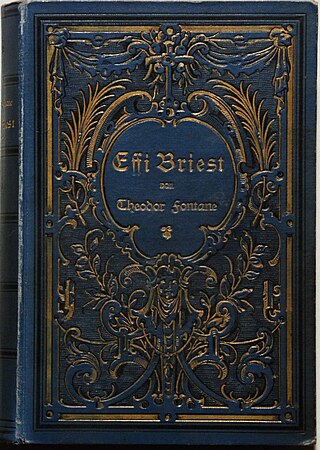
Effi Briest is a realist novel by Theodor Fontane. Published in book form in 1895, Effi Briest marks both a watershed and a climax in the poetic realism of literature. It can be thematically compared to other novels on 19th-century marriage from a female perspective, such as Anna Karenina and Madame Bovary, which are also adultery tragedies.

Ruth Leuwerik was a German film actress, one of the most popular stars of German film during the 1950s. She appeared in 34 films between 1950 and 1977. Leuwerik is probably best known for her portrayal of Maria von Trapp in the films The Trapp Family and The Trapp Family in America.
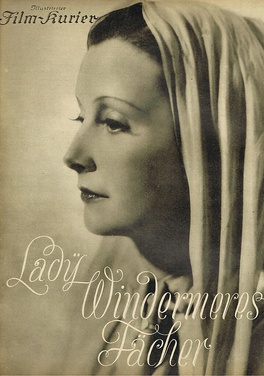
Lady Windermere's Fan is a 1935 German comedy film directed by Heinz Hilpert and starring Lil Dagover, Walter Rilla and Aribert Wäscher. It is based on the play Lady Windermere's Fan by Oscar Wilde. The film's sets were designed by the art directors Heinrich Beisenherz and Ludwig Reiber.
Carl Raddatz was a German stage and film actor. Raddatz was a leading man of German cinema during the Nazi era appearing in a number of propaganda films and romances. Later in his career he developed a reputation for playing benevolent father figures.
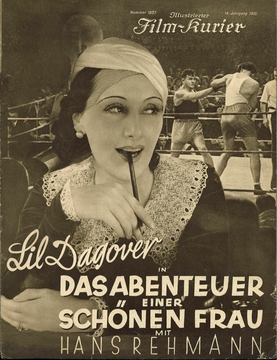
Thea Roland or The Adventure of Thea Roland is a 1932 German comedy film directed by Henry Koster and starring Lil Dagover, Hans Rehmann and Margarete Kupfer. The film marked the directorial debut of Koster, who was forced to emigrate from Germany by the Nazi party following his next film and later went on to be a leading Hollywood director. Billy Wilder may have also worked on the screenplay, although he remained uncredited.
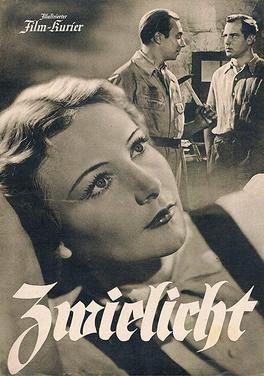
Twilight is a 1940 German drama film directed by Rudolf van der Noss and starring Viktor Staal, Ruth Hellberg and Carl Raddatz. The film's art direction was by Hermann Asmus and Carl Ludwig Kirmse.

Chronicles of the Gray House is a 1925 German silent historical drama film directed by Arthur von Gerlach and starring Paul Hartmann, Rudolf Forster and Lil Dagover.

Eleven Years and One Day is a 1963 West German drama film directed by Gottfried Reinhardt and starring Ruth Leuwerik, Bernhard Wicki and Paul Hubschmid.
The Dancer is a 1919 German silent film directed by Carl Froelich and starring Lil Dagover.

His Royal HighnessKönigliche Hoheit is a 1953 West German comedy film directed by Harald Braun and starring Dieter Borsche, Ruth Leuwerik, and Lil Dagover. It is based on the 1909 novel of the same name by Thomas Mann.

The Secret Courier is a 1928 German silent adventure film directed by Gennaro Righelli and starring Lil Dagover, Ivan Mozzhukhin and Agnes Petersen. It is based on the classic novel The Red and the Black by Stendhal, which Righelli later remade as a sound film The Courier of the King in 1947. The film was shot at the Terra Studios in Berlin. The film's art direction was by Otto Erdmann and Hans Sohnle.

Don't Play with Love is a 1949 West German comedy film directed by Hans Deppe and starring Lil Dagover, Albrecht Schoenhals and Bruni Löbel. It was shot at the Althoff Studios in Berlin. The film's sets were designed by the art director Willi Herrmann.

Beloved Life is a 1953 West German drama film directed by Rolf Thiele and starring Ruth Leuwerik, Carl Raddatz and Albert Lieven. Following her husband's release from a prisoner of war camp in 1947, a woman remembers their lives together since the pre-First World War era.

Red Roses, Red Lips, Red Wine is a 1953 West German romantic drama film directed by Paul Martin and starring Gardy Granass, John Van Dreelen, and Rolf von Nauckhoff. It shares its title with a popular song of the same era. It was made at the Tempelhof Studios in West Berlin. The film's sets were designed by the art director Erich Kettelhut.
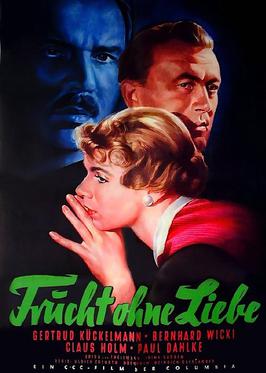
Fruit Without Love is a 1956 West German romantic drama film directed by Ulrich Erfurth and starring Gertrud Kückelmann, Bernhard Wicki and Claus Holm. It was made at the Spandau Studios in West Berlin. The film's sets were designed by the art director Rolf Zehetbauer.

The Bird Seller is a 1935 German musical comedy film directed by E. W. Emo and starring Maria Andergast, Wolf Albach-Retty, and Lil Dagover. It is an operetta film, based on the work of the same name by Carl Zeller.

Portrait of an Unknown Woman is a 1954 West German comedy film directed by Helmut Käutner and starring Ruth Leuwerik, O. W. Fischer and Irene von Meyendorff. It was shot at the Bavaria Studios in Munich and on location in Madrid and Paris. The film's sets were designed by the art directors Ludwig Reiber and Max Seefelder.
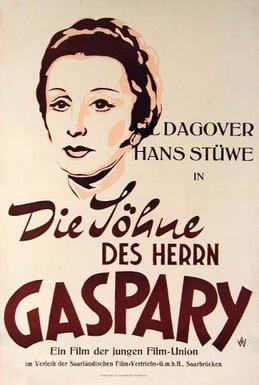
Gaspary's Sons is a 1948 German drama film directed by Rolf Meyer and starring Lil Dagover, Hans Stüwe and Inge Landgut. It was shot at the Bendestorf Studios near Hamburg and on location at Kleinwalsertal in western Austria. The film's sets were designed by the art director Erich Grave.
The Mask is a 1919 German silent crime film directed by Ewald André Dupont and starring Max Landa, Lil Dagover and Gertrude Welcker.
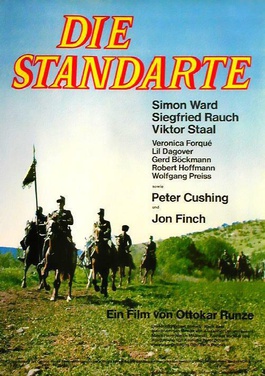
The Standard is a 1977 war drama film directed by Ottokar Runze and starring Simon Ward, Siegfried Rauch and Peter Cushing. It was made as a co-production between Austria, Spain and West Germany. The film is based on the 1934 novel The Standard by Alexander Lernet-Holenia, previously turned into a 1935 film My Life for Maria Isabella in Nazi Germany. It premiered at the Cannes Film Festival.

















